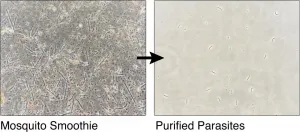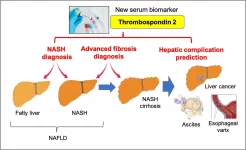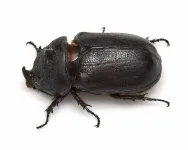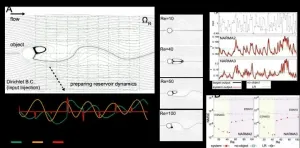(Press-News.org) A study carried out by the Institute of Environmental Science and Technology of the Universitat Autònoma de Barcelona (ICTA-UAB) and the Instituto de Saúde Pública of the University of Porto (ISPUP), concludes that exposure to natural spaces during the first COVID-19 lockdown in 2020 was beneficial for the mental health of Spanish and Portuguese citizens.
The research shows that, in Portugal, during the first confinement, people who maintained or increased contact with natural public spaces, such as parks and coastal areas, or who could contemplate these spaces from their homes, presented lower levels of stress, psychological distress and psychosomatic symptoms.
In Spain, those who maintained or increased contact with private natural spaces, such as indoor plants or community green areas, presented lower levels of stress and psychosomatic symptoms. This could be due to the fact that Spain adopted more restrictive measures for foreign circulation during the period analysed.
The research Exposure to nature and mental health outcomes during COVID-19 lockdown. A comparison between Portugal and Spain, published in the journal Environment International, was conducted between March and May 2020.
Dr Ana Isabel Ribeiro, researcher at the ISPUP and first author of the work together with Margarita Triguero-Mas from the ICTA-UAB says that "we decided to study whether natural, public and private spaces had a beneficial effect on the mental health of Portuguese and Spanish citizens, helping them to better cope with the negative effects of lockdown". For her part, Margarita Triguero-Mas adds that "people around us and ourselves talked about how we missed the park we crossed when we went to the office or the walk on the beach with our dogs, so we wanted to check to what extent contact with natural spaces was an important factor during confinement".
Several previous articles have also shown the positive impact of exposure to natural spaces on mental health, that is, in reducing stress, anxiety and improving psychological well-being as a whole. "Taking into account what is described in the literature, we wanted to evaluate whether people who enjoyed greater exposure to natural spaces during the first COVID-19 lockdown had better mental health indicators than those who had no contact with natural areas", explains Dr Ribeiro. At the same time, they wanted to investigate whether exposure to private natural spaces, such as gardens, orchards or plants, was more beneficial among Spanish citizens than among Portuguese, given that Spain applied stricter measures to restrict mobility than Portugal.
To carry out the research, the authors applied an online questionnaire, between March 27 and May 6, 2020, aimed at all citizens aged 18 years old or older, residing in Spain or Portugal. The survey covered aspects related to the frequency and type of exposure people had to natural spaces (public and private), before and during the first confinement; mental health questions to assess levels of stress, mental disorders and somatization symptoms, and sociodemographic issues. Of the more than 3,000 citizens (n = 3,157) who answered the questionnaire, 1,638 were Portuguese and 1,519 Spanish.
In both countries, during the confinement, there was a significant reduction in the use of public natural spaces, such as beaches, parks and gardens, and an increase in contact with private natural spaces, such as community gardens, urban gardens and plants, especially in Spain. People living in single-family houses (detached house) and flats located in cities were the ones who least maintained or increased their exposure to public natural spaces in both countries.
In Spain, where the measures during the period analysed were much more restrictive and it was forbidden to leave the house and public outdoor spaces were closed, the benefits of exposure to public natural spaces were not as relevant as in Portugal, but it was clear the importance of private natural elements. Among the Spanish citizens who participated in the study, 66% decreased the frequency of exposure to public natural spaces (compared to 54% in Portugal).
In Spain, it is remarkable that the people who least maintained or increased the care of indoor plants were people over 65 years of age, those who lived with several people at home or those who were in a second residence during confinement. In contrast, the people who maintained or increased the care of indoor plants the most were those with children, but without dependent adults.
In Portugal, those who were confined the longest and those who commuted to work were those who least maintained or increased their contact with the natural public spaces. In turn, those who practiced physical exercise indicated greater exposure to these places. Portuguese citizens who managed to maintain or increase their exposure to natural public spaces showed lower levels of stress compared to those who did not. Likewise, those who contemplated natural spaces from their homes obtained improvements in all the mental health outcomes analysed: stress, mental disorders and somatization.
"This study clearly demonstrates the benefit of natural spaces for the mental health of the population in a context of public health crisis," says Ana Isabel Ribeiro.
"Public authorities and decision-makers could implement measures that facilitate access to natural public spaces, in a safe and controlled manner, in the context of a pandemic. This is particularly important for the most socially and economically vulnerable population groups, and for those who have little access to these spaces in their private context", she emphasizes.
In addition, Dr Triguero-Mas adds that "our study is especially important for cities like Barcelona, where new buildings rarely have balconies or community spaces with vegetation. It is important to revalue how building remodelling or new homes can be healthier spaces that promote and prevent deterioration in the health of the people who inhabit them".
INFORMATION:
"Boomers" and "millennials" who go to church are more likely to trust their neighbours and donate to charity, according to a new study.
Religious beliefs and participation help close the gaps in civic participation between millennials and their elders, researchers have found.
Experts have measured the social "capital" religion gives people of all ages. They found those in their 20s and 30s were less likely to join groups and associations, and less likely to be religious, but being involved with the church gave them more "religious capital" than older people who also attended services.
The study shows boomers often have more social capital than millennials and are more likely to be religious. Religious ...
A faster method for collecting pure malaria parasites from infected mosquitos could accelerate the development of new, more potent malaria vaccines.
The new method, developed by a team of researchers led by Imperial College London, enables more parasites to be isolated rapidly with fewer contaminants, which could simultaneously increase both the scalability and efficacy of malaria vaccines.
The parasite that causes malaria is becoming increasingly resistant to antimalarial drugs, with the mosquitoes that transmit the disease also increasingly resistant to pesticides. This has created an urgent need for new ways to fight malaria, which is the world's third-most deadly disease in under-fives, with a child dying from malaria every two minutes.
Existing ...
Ibaraki, Japan - Severe childhood restrictive cardiomyopathy is a condition that causes the muscles in the walls of the heart to become stiff, so that the heart is unable to fill properly with blood. A mutation in a protein called BAG3 is known to result in restrictive cardiomyopathy, muscle weakness, difficulty taking in enough oxygen, and damage to multiple peripheral nerves, often shortening the patient's lifespan significantly. Until now there has been no successful model for the disease, making it extremely difficult to study.
However, researchers in Japan and Germany have now created a mouse model that mimics the human pathology, allowing the disease to be studied more easily. The team's data suggest ...
Osaka, Japan - Nonalcoholic fatty liver disease (NAFLD) is the most common liver disease worldwide and can progress to liver cirrhosis, liver failure or cancer. Currently, nonalcoholic steatohepatitis (NASH) diagnosis requires an invasive liver biopsy which can lead to procedural complications. Now, researchers at Osaka University working with international collaborators have identified a noninvasive biomarker that can identify patients at risk of NAFLD complications using a simple blood test.
Owing to the increasing prevalence of obesity worldwide, ...
The electroreduction of carbon dioxide (CO2) to produce value-added multicarbon compounds is an effective way to cut down CO2 emission. However, the low solubility of CO2 largely limits the application of related technology.
Although gas diffusion electrode (GDE) can accelerate the reaction rate, the instability of the catalysts caused by electrolyte flooding hinders further reaction.
Recently, inspired by setaria's hydrophobic leaves, Prof. GAO Minrui's team from University of Science and Technology of China developed Cu catalyst composed of sharp needles which possesses high level ...
When animals are hot, they eat less. This potentially fatal phenomenon has been largely overlooked in wild animals, explain researchers from The Australian National University (ANU).
According to lead author Dr Kara Youngentob, it means climate change could be contributing to more deaths among Australia's iconic marsupials, like the greater glider, than previously thought.
"Hot weather puts all animals off their food. Humans can deal with it fairly well; we usually have plenty of fat reserves and lots of different ...
A destructive pest beetle is edging closer to Australia as biological controls fail, destroying home gardens, plantations and biodiversity as they surge through nearby Pacific islands.
University of Queensland researcher Dr Kayvan Etebari has been studying how palm-loving coconut rhinoceros beetles have been accelerating their invasion.
"We thought we'd outsmarted them," Dr Etebari said.
"In the 1970s, scientists from Australia and elsewhere found that coconut rhinoceros beetles could be controlled with a beetle virus from Malaysia.
"This virus stopped the beetle in its tracks and, for the last 50 years or so, it more-or-less stayed put ...
As demand for electricity rises and climate change brings more frequent and extreme storms, residents in rural and suburban communities must have access to the minimal electricity they need to survive a large, long-duration (LLD) power outage.
A new study in the journal Risk Analysis compared strategies for providing emergency power to residents in two hypothetical New England communities during such an event. The results suggest that cooperative strategies like sharing a higher capacity generator among multiple homes cost 10 to 40 times less than if each household used its own generator.
"Our findings provide impetus for utilities, regulators, ...
Osaka, Japan - A team of scientists headed by SANKEN (The Institute of Scientific and Industrial Research) at Osaka University demonstrated that single virus particles passing through a nanopore could be accurately identified using machine learning. The test platform they created was so sensitive that the coronaviruses responsible for the common cold, SARS, MERS, and COVID could be distinguished from each other. This work may lead to rapid, portable, and accurate screening tests for COVID and other viral diseases.
The global coronavirus pandemic has revealed the ...
[Background]
In recent years, physical reservoir computing*1), one of the new information processing technologies, has attracted much attention. This is a physical implementation version of reservoir computing, which is a learning method derived from recurrent neural network (RNN)*2) theory. It implements computation by regarding the physical system as a huge RNN, outsourcing the main operations to the dynamics of the physical system that forms the physical reservoir. It has the advantage of obtaining optimization instantaneously with limited computational resources by adjusting linear and static readout weightings between the output and a physical reservoir without requiring optimization of the weightings by back propagation. However, since the information processing capability depends ...





